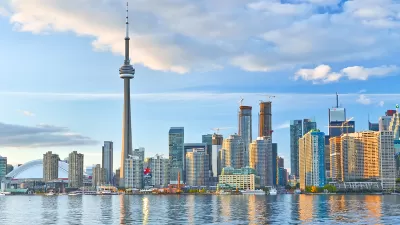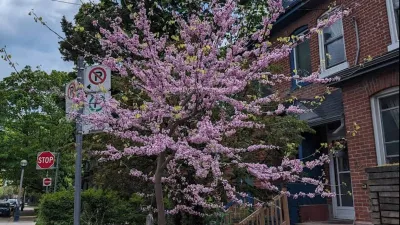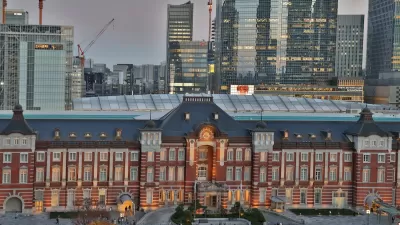As part of "Guardian Canada" week, an author writes a paean to benefits of a growing, forward looking, diverse city.

Stephen Marche explores Toronto as both "the most fascinatingly boring city in the world" and as the epitome of the 21st century post-industrial city. The description is borne from a comparison on one of its most famous North American predecessors:
Last year, the increasing population of Toronto passed the declining population of Chicago. Comparisons come naturally. What Chicago was to the 20th century, Toronto will be to the 21st. Chicago was the great city of industry; Toronto will be the great city of post-industry. Chicago is grit, top-quality butchers, glorious modernist buildings and government blight; Toronto is clean jobs and artisanal ice-creameries, identical condos, excellent public schools and free healthcare for all. Chicago is a decaying factory where Americans used to make stuff.
After describing the personality of the city as safe and reliable, even if still capable of nuance and contradiction, Marche notes the importance of the city's diversity.
At the same time, Toronto is 51% foreign-born, with people from over 230 countries, making it by many assessments, the most diverse city in the world. But diversity is not what sets Toronto apart; the near-unanimous celebration of diversity does. Toronto may be the last city in the world that unabashedly desires difference.
The article airs out more of the challenges to Toronto's ascent as a world-class city, but with a typically Canadian thread of optimism throughout.
FULL STORY: Welcome to the new Toronto: the most fascinatingly boring city in the world

Trump Administration Could Effectively End Housing Voucher Program
Federal officials are eyeing major cuts to the Section 8 program that helps millions of low-income households pay rent.

Planetizen Federal Action Tracker
A weekly monitor of how Trump’s orders and actions are impacting planners and planning in America.

Ken Jennings Launches Transit Web Series
The Jeopardy champ wants you to ride public transit.

California Invests Additional $5M in Electric School Buses
The state wants to electrify all of its school bus fleets by 2035.

Austin Launches $2M Homelessness Prevention Fund
A new grant program from the city’s Homeless Strategy Office will fund rental assistance and supportive services.

Alabama School Forestry Initiative Brings Trees to Schoolyards
Trees can improve physical and mental health for students and commnity members.
Urban Design for Planners 1: Software Tools
This six-course series explores essential urban design concepts using open source software and equips planners with the tools they need to participate fully in the urban design process.
Planning for Universal Design
Learn the tools for implementing Universal Design in planning regulations.
Ada County Highway District
Clanton & Associates, Inc.
Jessamine County Fiscal Court
Institute for Housing and Urban Development Studies (IHS)
City of Grandview
Harvard GSD Executive Education
Toledo-Lucas County Plan Commissions
Salt Lake City
NYU Wagner Graduate School of Public Service





























